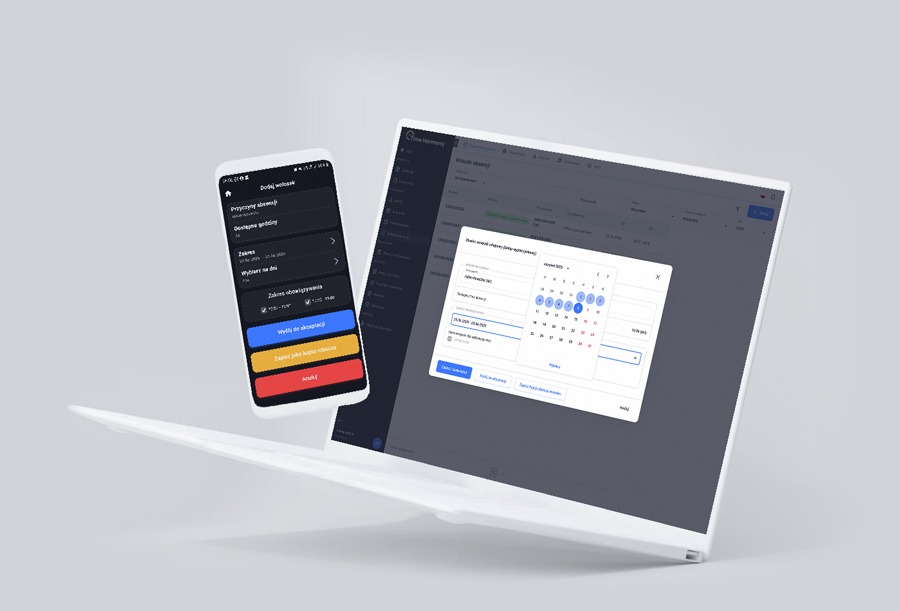The remote work model, once a symbol of flexibility and modernity, is increasingly giving way to hybrid work. More and more companies are asking employees to return to the office – at least partially. The reason is clear: research shows that work efficiency in a hybrid model is the highest among all work organization models, while also best supporting employee well-being.
To truly measure and analyze this efficiency, modern tools are essential – such as Time Harmony, a system that enables precise time tracking and real-time recording of work activities.
Hybrid work as the golden mean
Fully remote work offers undeniable benefits – it saves commuting time, provides flexibility in daily planning, and helps balance professional and personal life. Yet it also has limitations. Social isolation, lack of knowledge exchange, and declining innovation are problems that employers increasingly recognize.
At the same time, a full return to the office often meets with resistance from employees. The solution gaining popularity is the hybrid work model, which combines the best of both worlds. Employees spend part of the week in the office – maintaining direct contact with their teams and managers – while the rest of their duties are performed remotely, in a comfortable and focused environment.
Keeping work efficiency under control with Time Harmony
One of the biggest challenges in hybrid work is maintaining transparency and control over employees’ working time. Employers need reliable data that shows not only how many hours are worked but also how that time is spent – which tasks are performed, how processes flow, and where bottlenecks appear.
This is where Time Harmony comes in – a system designed to discreetly and precisely record working time and employee activities, whether they work from the office or remotely. The platform runs in a web browser, making it ideal for distributed teams. Each employee records the start of work and subsequent tasks, while managers gain access to real-time data in their management dashboard.
Widgets that reveal the real picture of work
In the Time Harmony management dashboard, managers can see a complete overview of their team’s activity:
• who started work and when,
• which tasks are currently being handled,
• how workloads are distributed across the team,
• which processes are on track and which require support or reorganization.
Clear widgets and visual reports allow leaders to quickly assess operational performance, react to delays, and monitor goal achievement across departments or specific projects.
Data-driven hybrid work
Tools like Time Harmony make it possible to combine the flexibility of remote work with the transparency of the traditional office. Managers no longer need to bring everyone back just to regain visibility – all they need is a system that provides access to real-time data on work hours, activities, and process efficiency.
In this way, work efficiency in a hybrid model stops being a compromise and becomes a management method built on measurable indicators and mutual trust.
Work efficiency in a hybrid model - conclusion
The trend of returning to offices doesn’t mark the end of remote work – it signals a new stage of balancing flexibility and productivity. Research shows that hybrid employees are more engaged and less likely to quit, while employers gain better process control and team insights – provided they use the right tools.
Time Harmony supports this balance by providing data that enables organizations to assess and improve performance, regardless of where work takes place. As a result, work efficiency in a hybrid model becomes not only measurable but fully manageable.

Easily manage your company's working time

